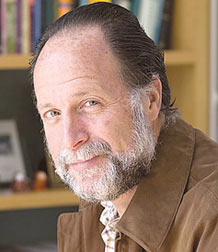Build trust among people
Solution to sustainable economic development says
Prof. Ricardo Hausmann:
by Dhaneshi Yatawara
 The Economic Forum has set the stage for international and national
experts and business tycoons to discuss and build a dialogue on economic
development trends. Organised by the Open Society Foundation, the
Economic Forum was based on a study by the Harvard University’s Centre
for International Development on initial growth diagnosis on Sri Lanka. The Economic Forum has set the stage for international and national
experts and business tycoons to discuss and build a dialogue on economic
development trends. Organised by the Open Society Foundation, the
Economic Forum was based on a study by the Harvard University’s Centre
for International Development on initial growth diagnosis on Sri Lanka.
Director of the Centre for International Development and former
Minister of Planning in Venezuela Prof. Ricardo Hausmann, in a brief
interview with the Sunday Observer, highlighted four key areas to
support sustained and inclusive growth. Commenting on the economic
development path, Sri Lanka is taking at present, he pointed out that it
depended on the government and the citizens to cooperate with each other
and stressed the need to follow the correct path to economic
development.
Excerpts.
Q : Sri Lanka, with the recent political changes is facing
challenges in the economy as well. How supportive will the Economic
Forum be for the country to overcome challenges?
A: This definitely creates the platform to discuss economic
development in the country under special circumstances – especially
after the end of a war. The Economic Forum is structured around areas
with risks and opportunities discussed among several
internationally-renowned leaders who would share their perspectives with
the government. An in-depth analysis and discussion on the need to
develop government policy on these lines have been identified.
Q : How is Sri Lanka’s economic development?
A: Sri Lanka is at a critical stage. After ending the war,
there is more space to focus on economic development. It is important to
create a dialogue among economic experts and the business community for
the way forward. Four areas need to be taken into consideration to
support sustainable growth. Firstly, macroeconomic and fiscal stability,
secondly structural transformation and competitiveness, thirdly,
urbanisation and development and finally regional development and social
inclusion.
Q: How would you analyse the current position of the Sri
Lankan economy?
A: With the end of the war, Sri Lanka has to focus more on
development. The fundamental solution is inclusive growth through social
change. The country’s resources need to be equally shared to result in
sustainable social change. Inclusive growth could be at regional or
national level.
Q: The world economy is facing challenges due to climate
change. Sri Lanka felt the changes more frequently in the recent past,
which affected agriculture - the basis of the country’s economy. How can
countries face those challenges which will have a direct and indirect
impact on economic growth?
A: Sri Lanka cannot stop global warming as it is created by
other countries. This year it is believed the weather patterns have
worsened due to the El Nino effect. There are droughts in one part of
the world, while others experience excessive rain and floods. Countries
need to master the technology. This demands a learning society and a
learning economy.
Q: Sri Lanka alos faces challenges regarding the GSP Plus –
particularly the garment and fishing sectors. Government discussions
with the EU seem to be positive but nothing has been finalised as yet.
Sri Lanka’s economy depends on these industries, especially the garment
industry. Has Sri Lanka been heavily dependent? Do we need to change?
A : The GSP Plus is meant for greater benefit, to support
developing economies without paying large tariffs to markets in the
developed countries. The impact depends on how effectively it is used.
Q: Do you think Sri Lanka is on the right path as far as
economic development is concerned?
A: It all depends on the government and the citizens and how
they cooperate with each other - on conditions in which the society is
attuned. For Sri Lanka, it is too small at national level and too big at
global level to have internal fights.
It is fundamental to solve problems by building confidence and trust
among people and it is through this that sustainable economic
development can be achieved.
-------
Ricardo Hausmann
Director, Center for International Development,
Harvard University
Ricardo Hausmann, is a Professor of the Practice of Economic
Development at the Kennedy School of Government. Earlier, he served as
the first Chief Economist of the Inter-American Development Bank from
1994 till 2000. He has served as Minister of Planning in Venezuela in
1992 and 1993. He was a member of the Board of the Central Bank of
Venezuela. He was Chair of the IMF-World Bank Development Committee and
Professor of Economics at the Instituto de Estudios Superiores de
Administracion (IESA), in Caracas for nearly six years from 1985 where
he founded the Center for Public Policy. His research interests include
issues of growth, macroeconomic stability, international finance and the
social dimensions of development. He holds a PhD in Economics from the
Cornell University.
|

